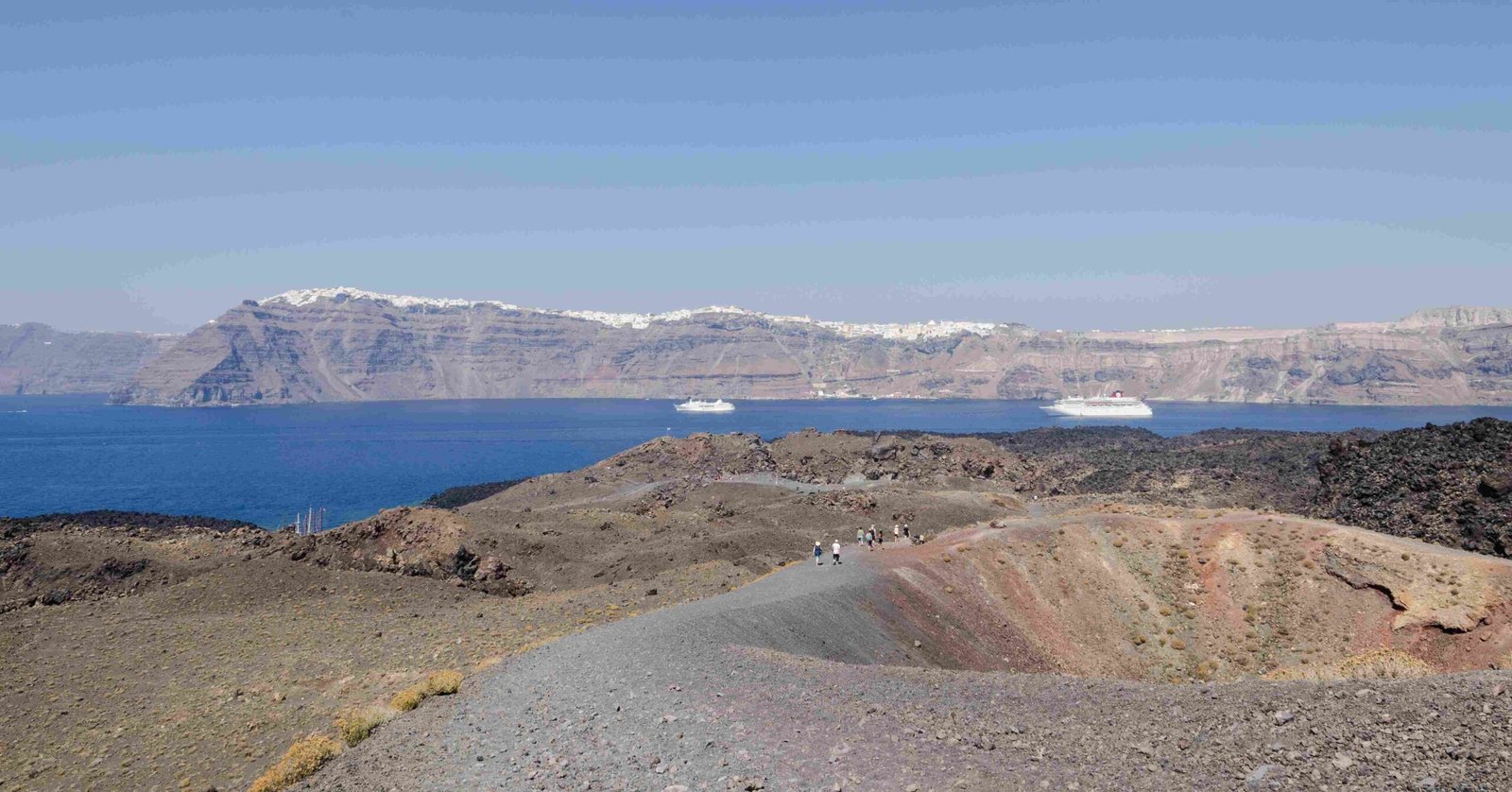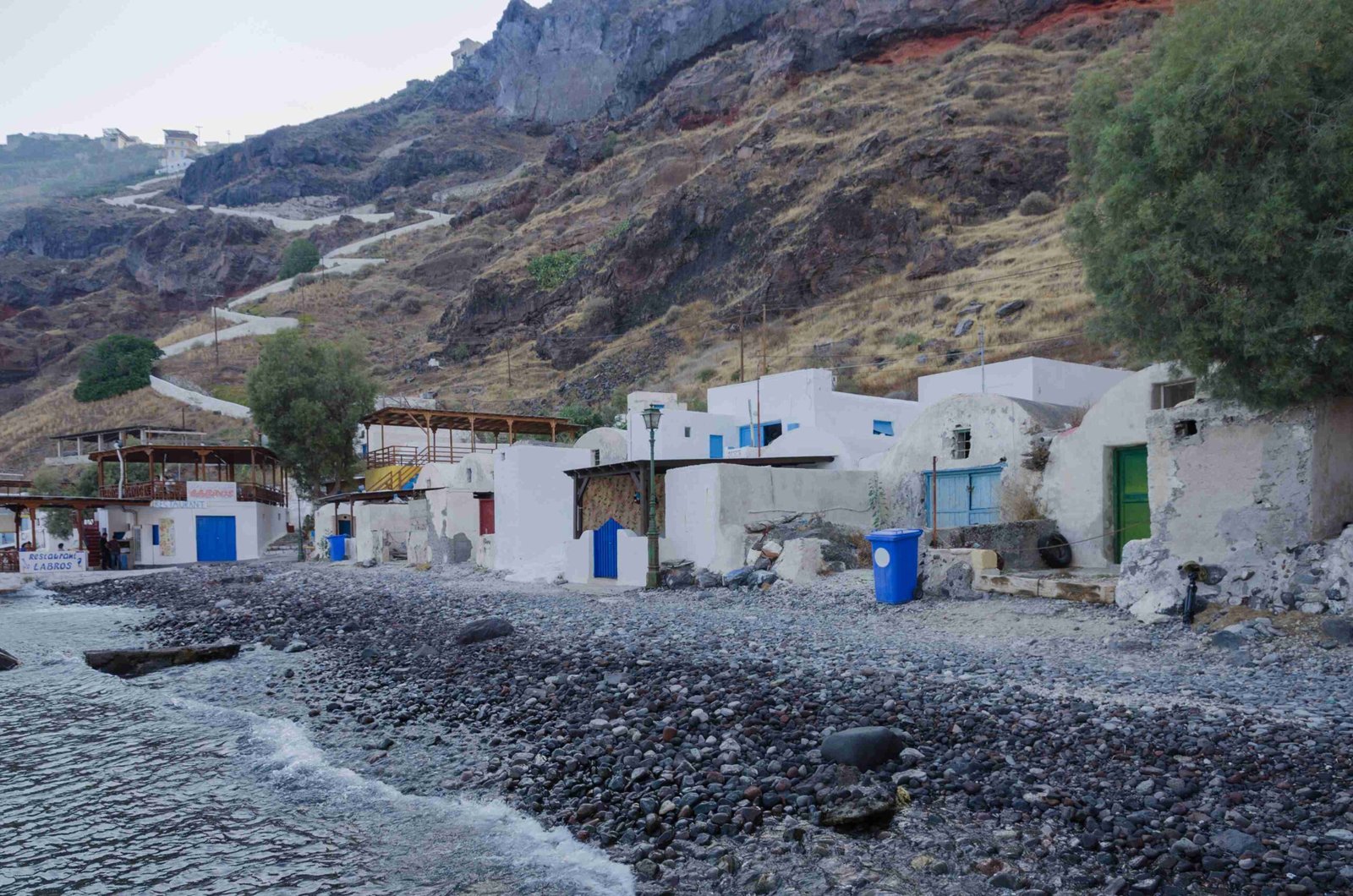Santorini wine growing is a testament to the island’s unique terroir and ancient viticultural traditions. The volcanic soil, dry Mediterranean climate, and innovative cultivation techniques have created a wine-growing environment unlike any other in the world. Santorini’s vineyards, some of the oldest in Europe, produce distinctive wines that reflect the island’s harsh yet beautiful landscape. This article explores the fascinating world of Santorini wine growing, from its climatic challenges to its traditional methods and the exceptional wines that result.
What Makes Santorini’s Climate Ideal for Wine Growing?

Santorini’s climate plays a crucial role in shaping its wine industry. The island experiences a Mediterranean climate with some unique characteristics:
- Temperature: Annual mean air temperature of 18.4°C
- Summer Heat: July and August can see temperatures exceeding 35°C in the shade
- Winter Mildness: Winter temperatures range from 10°C to 14°C
- Rainfall: Average annual precipitation of 316 mm (1974-2019)
- Humidity: Low humidity, especially during summer months
This climate creates challenging yet favorable conditions for grape cultivation. The intense heat and low rainfall force the vines to develop deep root systems, contributing to the concentration of flavors in the grapes.
How Does Santorini’s Volcanic Soil Influence Wine Production?

The volcanic soil of Santorini is a key factor in its wine growing success:
- Composition: Rich in minerals and porous
- Drainage: Excellent water drainage properties
- Phylloxera Resistance: Absence of clay prevents phylloxera infestation
- Root Development: Encourages deep root growth for water access
This unique soil composition allows vines to be grown on their own roots, a rarity in the wine world. The mineral-rich soil also imparts distinctive flavors and aromas to Santorini wines.
What Traditional Cultivation Methods Are Used in Santorini?
Santorini wine growers have developed innovative techniques to combat the harsh growing conditions:
The ‘Kouloura’ System
- Description: Vines trained into a wreath-like basket shape
- Benefits:
- Protects grapes from strong winds
- Shields fruit from intense sunlight
- Helps retain moisture
- Improves photosynthesis
Other Traditional Practices
- Dry Farming: Reliance on natural rainfall and humidity
- Old Vines: Many vineyards feature centuries-old vines
- Hand Harvesting: Careful selection of grapes by hand
These methods have been refined over centuries to maximize grape quality in Santorini’s unique environment.
How Are Santorini Vineyards Adapting to Climate Change?
Climate change poses new challenges for Santorini wine growing:
- Reduced Rainfall: Recent years have seen significantly lower precipitation
- Increased Heat: Rising temperatures stress vines and alter grape ripening
- Adaptation Strategies:
- Water management techniques
- Canopy management to protect grapes from excessive sun exposure
- Exploration of heat-resistant grape varieties
Vineyards like Domaine Sigalas are at the forefront of adapting to these changing conditions, ensuring the continued success of Santorini wine growing.
What Are the Primary Grape Varieties Grown in Santorini?
Santorini is known for several indigenous grape varieties:
| Grape Variety | Wine Style | Characteristics |
|---|---|---|
| Assyrtiko | White | High acidity, mineral notes |
| Athiri | White | Aromatic, softer acidity |
| Aidani | White | Floral, often blended |
| Mavrotragano | Red | Full-bodied, tannic |
| Mandilaria | Red | Deep color, often blended |
Assyrtiko is the flagship variety, known for its ability to maintain high acidity despite the hot climate.
How Does Organic Wine Production Factor into Santorini’s Viticulture?
While specific data on organic wine production in Santorini is limited, there’s a growing trend towards sustainable practices:
- Many producers adopt organic or sustainable methods
- Focus on preserving the island’s viticultural heritage
- Emphasis on natural pest control and minimal intervention
The harsh climate and isolated location of Santorini naturally lend themselves to organic growing practices, as the risk of disease and pests is lower than in many other wine regions.
What Makes Santorini Wines Unique in the Global Market?
Santorini wines stand out for several reasons:
- Terroir Expression: Volcanic soil imparts distinct mineral character
- Indigenous Varieties: Unique grape varieties not widely grown elsewhere
- Age-Worthy Whites: Assyrtiko wines known for their aging potential
- Low Yield, High Quality: Harsh conditions result in concentrated flavors
- Historical Significance: Some of the oldest continuously cultivated vineyards in the world
These factors combine to create wines that are truly reflective of their origin and highly sought after by wine enthusiasts globally.
How Can Visitors Experience Santorini Wine Growing?
For those interested in experiencing Santorini wine growing firsthand:
- Winery Tours: Many vineyards offer guided tours and tastings
- Harvest Experience: Some wineries allow visitors to participate in grape harvesting (typically in August)
- Wine Museums: Learn about the history and techniques of Santorini viticulture
- Wine Trails: Self-guided or organized tours of multiple wineries
- Pairing Dinners: Experience local cuisine paired with Santorini wines
Visitors should contact individual wineries or local tour operators for specific offerings and schedules.
Santorini wine growing is a fascinating blend of ancient tradition and modern innovation. The island’s unique climate, soil, and cultivation methods produce wines that are truly one-of-a-kind. As the industry continues to adapt to changing conditions, Santorini remains a beacon of quality and distinctiveness in the world of wine.
References:
1. https://oeno-one.eu/article/view/4843
2. https://sigalas-wine.com/2024-santorini-harvest-report/
3. https://winesofgreece.org/articles/the-santorini-kouloura/

